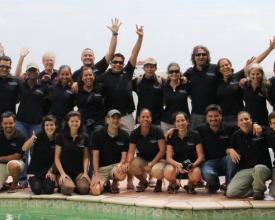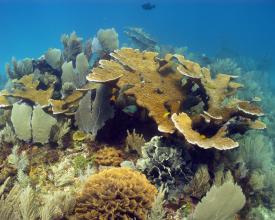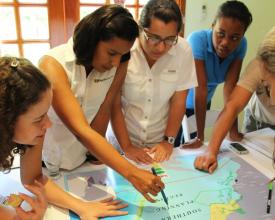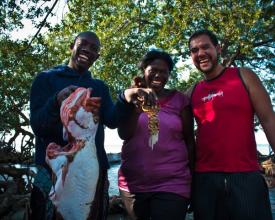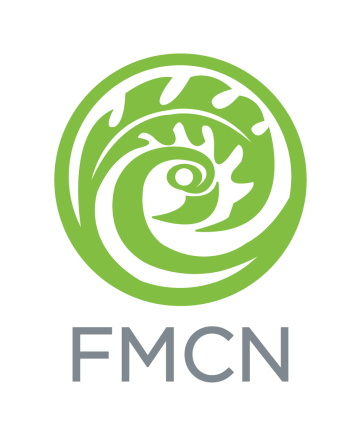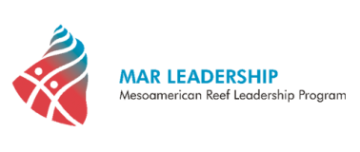
Mesoamerican Reef Leadership Program
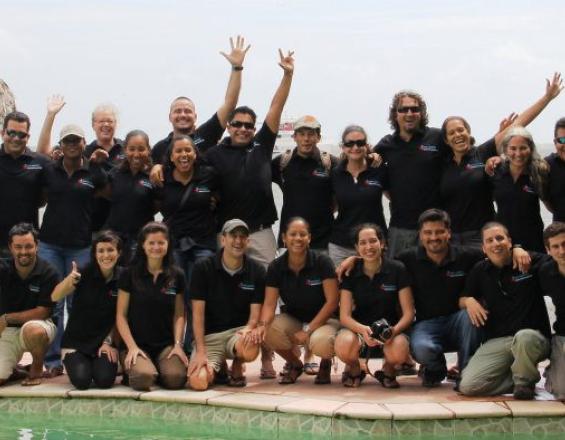
In 2010, the Mexican Fund for the Conservation of Nature (FMCN) and the Summit Foundation launched the Mesoamerican Reef Leadership Program to accelerate the conservation of the Mesoamerican Reef system (MAR) by supporting high impact conservation projects and strengthening the capacities and leadership skills of young conservationists in Mexico, Belize, Guatemala, and Honduras. To date, MAR Leadership has trained 71 fellows from different backgrounds and sectors who now apply skills from this proggram in numerous marine conservation projects in the MAR region.
Context
Challenges addressed
- Ecosystems in critical conditions that are crucial for local communities and traditional livelihoods
- Solid waste, sewage, severe overfishing, poor coastal & tourism development and global threats like climate change
- Conservation community is small and dispersed
- Lack of practitioners with expertise in business management, organizational management, planning, networking, and communications
Location
Process
Summary of the process
The Mesoamerican Reef (MAR) System is the 2nd most biologically significant of its kind. Its main threats are local land-based pollution, severe overfishing, poor coastal & tourism development, and impacts of climate change. The MAR Leadership program accelerates the conservation of the MAR by high-impact and replicable conservation projects as well as by strengthening the capacities and leadership skills of young conservationists in Mexico, Belize, Guatemala and Honduras. The program operates through “cohorts” of 10-12 fellows from a variety of backgrounds and professions. A cohort cycle (12 months) encompasses group training modules, individually tailored training, peer-to-peer learning and cooperation, mentoring, technical assistance, and networking opportunities. To date, MAR-Leadership has trained 71 conservationists working at different institutions who are implementing marine conservation projects. Connectivity plays a crucial role and the program strives to share knowledge and remove traditional barriers that often impede efforts to protect the reef system.MAR Fellows, invited experts and partners are forming a vibrant network strengthening collaborations and increasing conservation impacts in the region.
Building Blocks
New skills for conservation leaders
The capacity of local conservation leaders is strengthened so they become more effective in the design and implementation of their conservation projects in a manner that will serve fellows of this programme throughout their life time.
The MAR Leadership Program offers group and individual training:
During group workshops fellows are trained in project design and their leadership abilities are refined. Targeted competencies include the development of effective communication strategies, public speaking, negotiation and conflict resolution, time management and leadership in team management.
For individual training fellows have access to a small budget that can be used to participate in courses or technical diploma programs, intensive English or Spanish classes, visits to mentors, visits to pilot projects, internships in international organizations that deal with topics associated with the fellow’s project, as well as the production of market studies and data generation to bolster the feasibility of a given fellow’s project. These funds are expended according to a training plan designed with inputs from both the program’s staff and international experts.
Enabling factors
- A group of committed young fellows for each cohort
- International experts and mentors that deliver training on project design and leadership skills
- Financial resources for program’s operation
- Seed funding for project launching
Lesson learned
It proved helpful to involve a consultant who provides technical advice, co-facilitates trainings, and advices in project design. Specifically, the consultant helps to:
- Research, review and distill the most up-to-date literature on the cohort´s topic, with an emphasis on the MAR region.
- Based on research above, make recommendations to fine tune the program’s regional vision of success, and clearly defined objectives that are time-bound and measurable against baselines
- Assist program staff in the development of a profile of the ideal fellow for the cohort and in selecting 12-14 fellows for the programme.
- Lead the cohorts' leadership and project development training curriculum
- Facilitate and identify resource people to deliver successful training workshops during the cohort cycle.
- Provide mentoring and technical assistance to the fellows in the incubation of their project ideas to turn them into success.
Resources
Innovative ideas to scale across a region
The MAR Leadership programme seeks to incubate new project ideas into projects with the potential for replication (scaling-up) along the Mesoamerican Reef Ecoregion. These projects are developed to show clear and measurable conservation impacts within a 3 - 5 year time horizon. Each cohort has a thematic focus linked to the conservation needs of the region. For example, in 2010 the fellows´ projects focused on coastal development and tourism; in 2011 on sustainable fisheries and establishment of Marine Protected Areas (MPAs); in 2012 on the establishment of a network of multifunctional marine reserves; in 2014 on integrated solid waste management and 2015 on conservation and economical valuation of mangrove ecosystem services.
Enabling factors
- Fellows commitment to implement their projects
- Fellows’ organization support
Lesson learned
- Tapping the expertise of fellows and encouraging them to self-organize around learning and action projects (seeded with resources) help them develop their leadership skills.
- Fellows’ projects are more likely to succeed if they are part of the work plan of their organization.
- Seed funding is needed to launch projects.
Life-long networking opportunities
Group learning, peer feedback and peer-to-peer exchanges are embedded in the design of the MAR-Leadership program. This is coupled with ongoing virtual networking opportunities to enable the fellows to develop a support group for their current projects and their ongoing passion for the conservation of the Mesoamerican Reef. MAR Leadership seeks a consolidated, active MAR Leadership network where fellows collaborate among themselves and with experts, communities, governments, and academic institutions, regardless of borders. Forging connections across disciplines, organizations and geographical boundaries has been central to the MAR-Leadership mission.
Enabling factors
- Keeping fellows engaged, maintaining dynamic active social networks and offering benefits to alumni such as fellowships for courses or trainings, or publishing their work and news.
- Develop strategies that support “fellow to fellow” interactions. Since many fellows use Facebook, recruit fellows to help with MAR-Leadership’s Facebook page.
- Fellows have different amounts of time and energy based on changing life circumstances; offer different tiers of engagement that can tap everyone.
Lesson learned
- Behaviors and attitudes required for developing networks and organizational management need to be learned. It is important to coach staff and fellows in network principles and strong network behaviors.
- Introducing social media tools help fellows mobilize support for their own work and build capacity with tools that can support their ongoing connectivity.
Impacts
Biological impacts:
Through their projects, MAR Fellows along the different cohorts have promoted and strengthened the protection of numerous ecological areas and species of interest along the region: fish replenishment zones have been decreted, coral reefs are being restored and invasive species regulated.
Economical impacts:
Natural resource valuation, productive alternatives, payment system for environmental services and sustainable management pathways are being developed. A Mayan community-based and eco-touristic project is securing sustainable use of natural resources, its conservation and the people wellbeing. MAR Fellows are also seeking the integration of blue carbon into mitigation mechanisms to provide incentives for landowners and protect mangroves ecosystems.
Social impacts:
There is no environmental change without involvement of every sector of the community. A key stakeholder strategy is needed to carry on conservation projects where environmental education is key. MAR Fellows from Honduras have integrated solid waste management and environmental education into Roatan's green classroom.
Over the course of several cohorts, MAR Fellows from Belize have designed, tested and strengthened what is now the national program for license based sustainable small scale fisheries: Managed Access. This program is now being studied for replication in other countries.
Beneficiaries
- Over 71 MAR fellows and their collaborators from civil society organizations, government agencies or private sector
- Around 2.2 million inhabitant from coastal communities
Sustainable Development Goals
Story
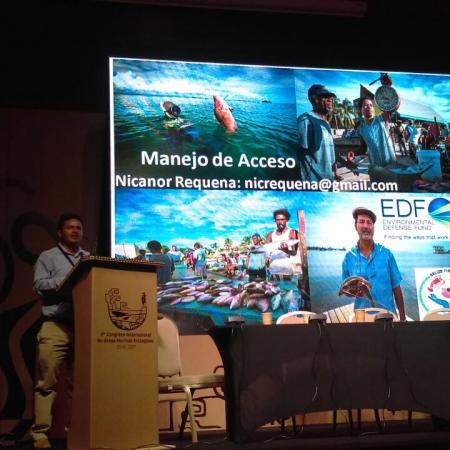
The fishing activity in Belize represents important income revenue with reported 29 million USD in 2012 and employs more than 3000 people. Until recently, no regulations (except for the conch) were applied for the activity as it was considered “open access” where uncontrolled number of fishers and uncontrolled number of harvest stocks resulted on overfishing and a rapid fishing stock decline.
To attend these concerns, in 2011, MAR Fellow Nicanor Requena, from the Environmental Defense Fund (EDF) in collaboration with the Belize Fisheries Department, Wildlife Conservation Society (WCS), Toledo Institute for Development and Environment (TIDE), and several fishermen associations developed this first system of right based fisheries Managed aAccess which was initially piloted in Port Honduras and Glovers Reef Marine Protected Areas. In 2012, Adriel Castañeda, working at the Belize Fisheries Department, joined the MAR L program with the idea of empowering fishermen with tools and knowledge in order to transform them into informed stewards of their resources which they depend upon for their livelihoods. His vision was that in order to achieve sustainable fisheries in Belize, fishers had to become a central part its management.
The work at these initial pilot sites enabled the Fisheries Department and partners to demonstrate that this fisheries management tool did indeed work and fishers supported it. After extensive work with fishers and policy makers, the Managed Access Working Group (a team made up of local NGOs, fisher associations, cooperatives under the guidance of the Belize Fisheries Department) have implemented Managed Access in all the territorial waters of Belize.
"This was a major accomplishment. It is the work of member organizations of the Belize Managed Access Working Group. I am energized by this and will continue to work on getting successful implementation in Belize with the hope that we can share what we have done in Belize with others in the region... From my perspective the MAR Leadership program has contributed to this work by fostering and improving the networking among key partners both at local and regional level and has been a very good platform through which our experience can be shared" said Nicanor.
At present, the overall managed access project in Belize is sustained by an active partnership among several MAR Fellows and their institutions.
